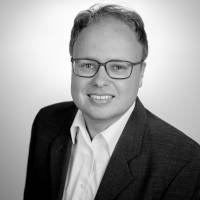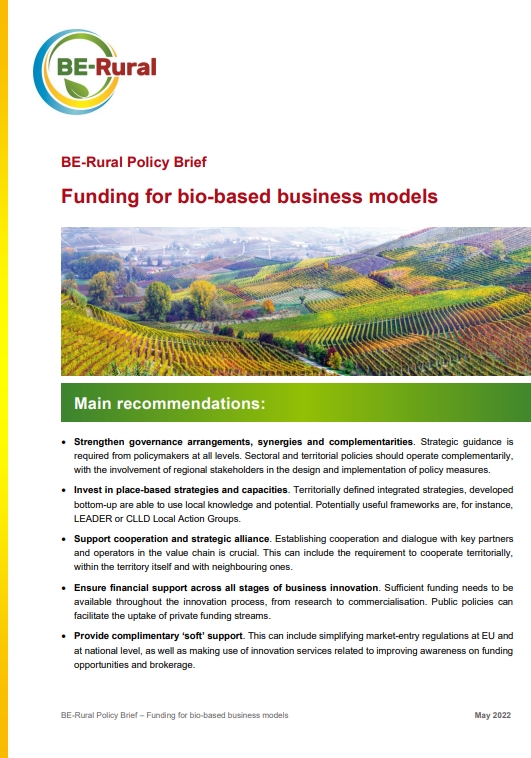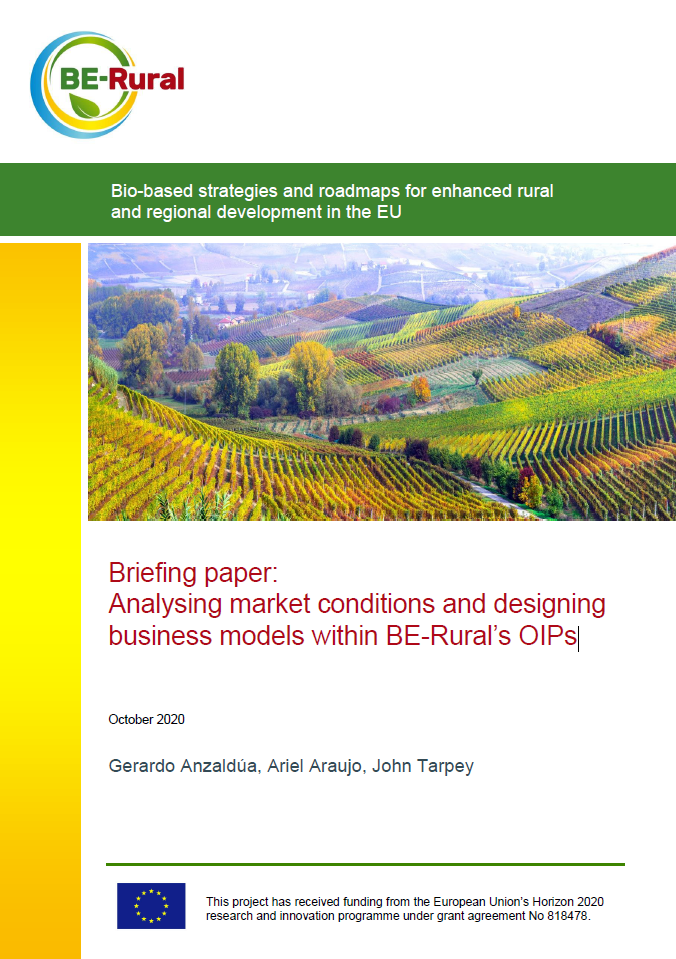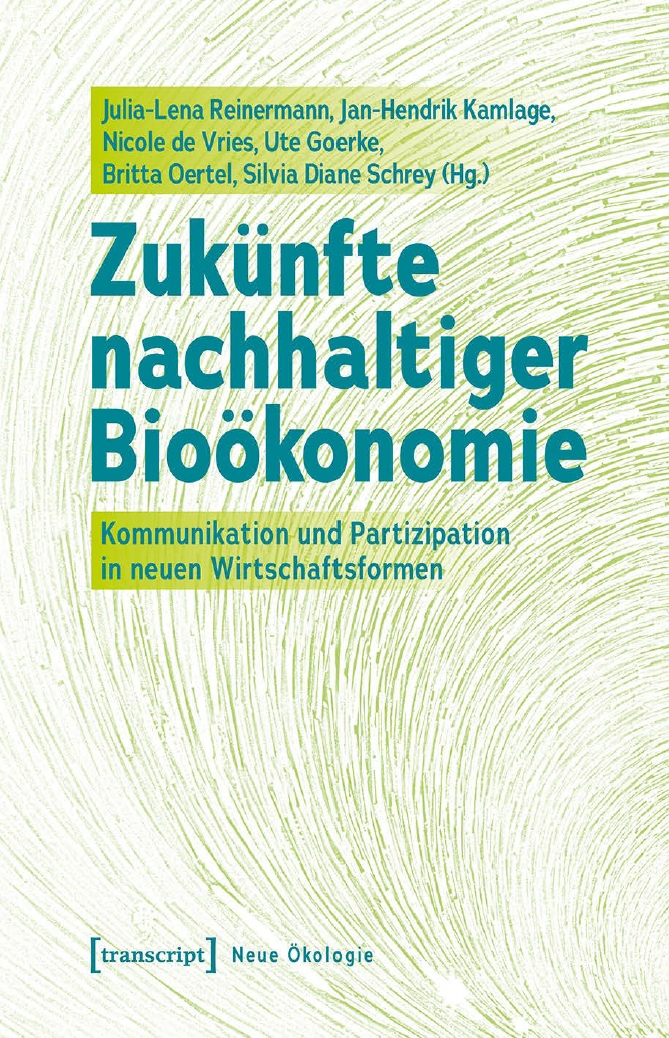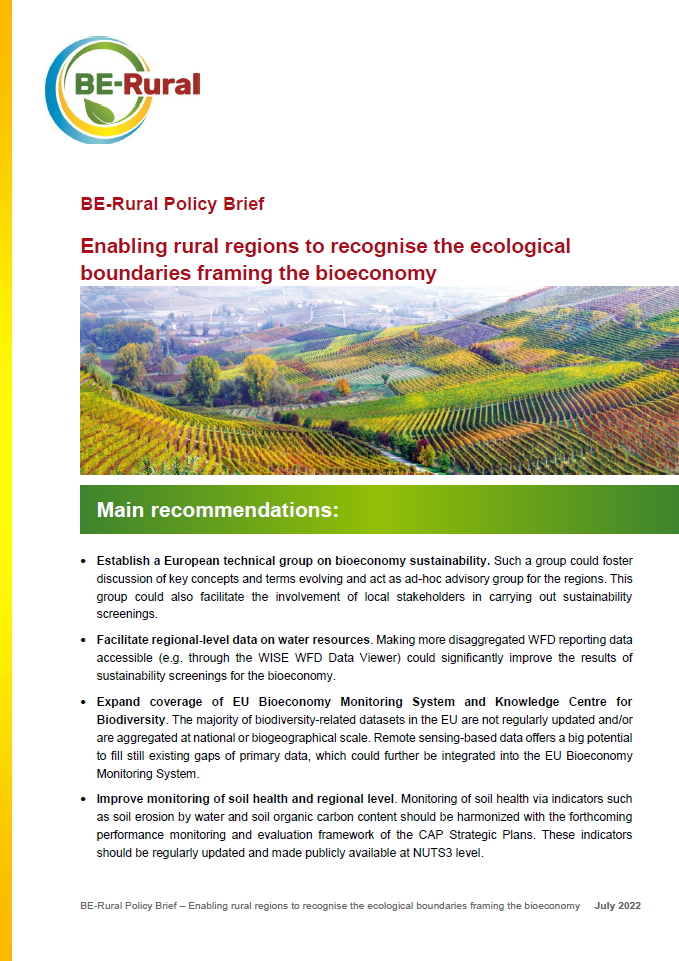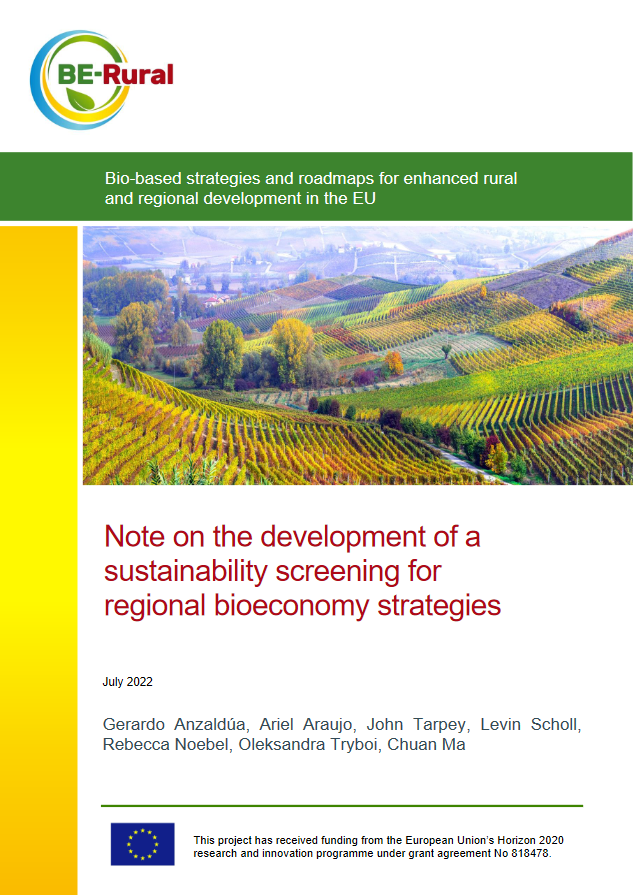Photo: canva.com
Inspiring Regional Agendas for Inclusive Bioeconomies
BE-RURAL Final Conference
- Event
- Date
-
-
- Location
- Frombork, Poland
- Speaker
After 40 months of collaboration, the BE-Rural project concluded with its Final Conference, held in Frombork, Poland, from 11 to 14 July 2022. Approximately 40 project members and regional bioeconomy stakeholders – representing research organisations, universities, cluster associations, local action groups and regional authorities from eight EU Member States and candidate countries – gathered to reflect on BE-Rural's achievements. Holger Gerdes and Zoritza Kiresiewa (Ecologic Institute) opened the meeting with a concise introduction to BE-Rural's objectives and underscored the value of convening in person after two years of largely virtual exchanges due to the COVID-19 pandemic. Throughout two days of expert talks and small-group working sessions, participants reviewed the project's core outputs, validated selected results, and identified concrete steps for future collaboration. Two field trips to the Vistula Lagoon region complemented the indoor sessions, offering firsthand insights into ongoing rural development initiatives.
Highlights and Outputs
Immediately following the opening, the BE-Rural work package leaders presented key project deliverables. Chuan Ma (WIP Renewable Energies) showcased the "Handbook on Regional and Local Bio-based Economies," available in seven languages; Lily Teitelbaum (BIOCOM) highlighted public engagement efforts – such as bio-based pop-up stores and teaching materials on circularity and sustainability; and Stefan Kah (University of Strathclyde) summarized capacity-building workshops for researchers and SMEs. Gerardo Anzaldua (Ecologic Institute) then introduced the Market Analysis Framework (MAF+) and the BE-Rural Sustainability Screening. Each of the five Open Innovation Platforms (OIPs) presented their region's strategy and roadmap documents – developed through participatory stakeholder processes – and discussed lessons learned from implementing bio-based business models in contexts ranging from North Macedonia to Bulgaria and Poland.
Policy Recommendations and Sustainability Screening
A central activity of the Final Conference was the co-development and validation of the BE-Rural Policy Paper. In a World Café format, participants debated four targeted policy recommendations for promoting effective co-creation spaces in regional bioeconomies. Key discussion points included:
- innovative formats for citizen dialogue (e.g., science shops, pop-up stores, multi-channel communication),
- regional frameworks to support capacity-building (e.g., integration into smart specialisation strategies, use of Local Action Groups),
- enabling multi-actor partnerships (e.g., clusters, local action groups, Digital Innovation Hubs) to ensure inclusiveness, and
- upskilling entrepreneurs to design bio-based products that respect ecological limits.
Concurrently, Gerardo Anzaldua presented the BE-Rural Sustainability Screening – a framework guiding decision-makers to incorporate ecological boundaries (water, soil, biodiversity, biomass) into regional roadmaps. Regional partners from Stara Zagora and Vidzeme shared preliminary screening results, underlining the importance of ecological considerations in strategy development.
Launching the Network of Knowledge
To ensure lasting impact beyond BE-Rural's formal end, the consortium launched the BE-Rural Network of Knowledge (NoK) – an open, informal forum for ongoing exchange among bioeconomy stakeholders across Europe. Hosted on the "Sustainable Development Goals Network Romania" Facebook group, the NoK invites practitioners, academics and policymakers to share good practices in designing and implementing regional bioeconomy strategies. At the Final Conference, three breakout groups formed around policy-making, research and education, and business support. These groups explored topics such as integrating bioeconomy into educational curricula, forging academia-industry links, and developing a sustainability checklist for early-stage ventures. Participants agreed that the NoK fills a gap in existing networking opportunities by providing a dedicated platform at the regional level to facilitate knowledge sharing.



